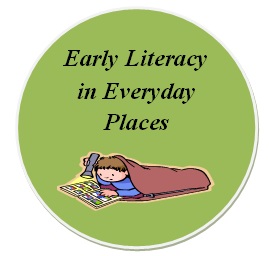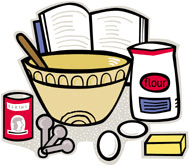 Summertime is a great place to start healthy habits for your family. What better place to start than in your kitchen? Cooking with toddlers and preschoolers can be fun, messy and an incredible learning experience fostering healthy eating habits, developing your child's imagination and their gross motor skills. Whether its something as simple as brewing a pot of coffee or more complex like cooking spaghetti, this is an experience they will always remember.
Summertime is a great place to start healthy habits for your family. What better place to start than in your kitchen? Cooking with toddlers and preschoolers can be fun, messy and an incredible learning experience fostering healthy eating habits, developing your child's imagination and their gross motor skills. Whether its something as simple as brewing a pot of coffee or more complex like cooking spaghetti, this is an experience they will always remember.
Prep Work
Discuss kitchen safety before starting any cooking projects. Explain that the stove and oven heat up when being used. Discuss that the stove gets very, very hot, but that the refrigerator and freezer stay super cold. Explain that some items in the kitchen are sharp, like knives and scissors. Keep anything harmful out of arm's reach of curious toddlers. Make sure to show them what is safe and OK for them to handle, and what they should leave to the adult.
Other tips for helping kids stay safe and comfortable in the kitchen:
- Select a spot in the lower cabinets to store their cups, plates and utensils so that they can grab what they want when they need it.
- Lock cabinets with dangerous chemicals or cleaning supplies. This usually means the space under the sink.
- Use the back burners when cooking so that they stay out of reach of little hands.
Cooking in the Kitchen
A is for Appliance - Identify the different appliances and their uses in the kitchen. Coffee grinder, blender, food processor, etc. Each item has a specific function in the kitchen. If you are going to use that appliance, let your child press the button to see how it works. Repeat the name and spell it out. Talk about the different functions on whichever machine you plan on using. If you have a teapot at home, bring it out and sing "I'm a Little Teapot." Then ask your child "where is the handle?" and "where is the spout?" on the actual teapot. Pretend to drink a cup of tea together and talk about what it tastes like.
C is for Chef - A fun game to reinforce these literacy skills is to play restaurant. Explain that chefs in restaurants often create their own recipes for all the food on the menu. Talk about the different jobs in the restaurant. The server, the chef, the greeter. Have someone in your family pretend to order a meal and have your child act out the different roles, from taking the order to cooking it in the kitchen, or their play kitchen if applicable. Have your child write or draw out the menu options to give to the "customer" to really enhance the experience. This is also a great way to introduce dining etiquette to the family, especially if your children haven't eaten out yet.
M is for Meals - Breakfast, brunch, lunch, snack, dinner, brinner, afternoon tea, midnight snack. So many meals to enjoy all in one day! Talk about the different meals in a day, which ones you as a family engage in, and which one you will be specifically working on together. Are you making breakfast together? When you do normally eat breakfast? What foods are most common during breakfast? Engaging in this type of conversation will give your child lots of background knowledge and expand their vocabulary. Both are key components when learning how to read. Talk about your favorite meals, your grandmother's best recipe, traditional family cuisines, etc.
 R is for Recipe - Once you've selected your meal, write out a recipe together. Together, list all the ingredients and their quantities (how much of each item do you need). This is a fun way of incorporating and developing math skills with your child. Then, go through and plan out what your steps will be. This helps your child learn that there is a process, one action leading to another. Developing a sequence of events will help them with their future reading skills as well as enhancing their analytical and critical thinking skills. If you are following a recipe, read through the steps together and quiz each other on what happens next.
R is for Recipe - Once you've selected your meal, write out a recipe together. Together, list all the ingredients and their quantities (how much of each item do you need). This is a fun way of incorporating and developing math skills with your child. Then, go through and plan out what your steps will be. This helps your child learn that there is a process, one action leading to another. Developing a sequence of events will help them with their future reading skills as well as enhancing their analytical and critical thinking skills. If you are following a recipe, read through the steps together and quiz each other on what happens next.
Book Ideas
(Look in the 641s section in both children and adult non-fiction stacks for cookbooks with delicious and diverse cookbooks!)
Don't forget that these books can count for your 1000 Books Before Kindergarten log.


Add a comment to: Early Literacy in Everyday Places: The Kitchen